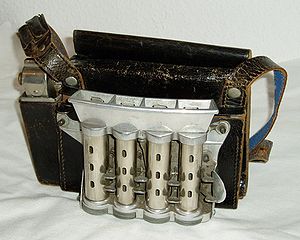What are the reasons why people buy from you? Or anyone else? Is it because you’re better? Faster? Cheaper?
Not really. Yes, those are perfectly logical reasons. But people generally don’t make decisions logically.
We like to think our reasoning is logical, dispassionate, and completely unemotional. Cool and rational, just like Mr. Spock.
We’re wrong.
The real decision-making process when we buy something is a bit different.
We decide based on emotional factors, not logical ones. We then use those emotions to justify our decisions, and tell ourselves we’re being completely rational.
The real reasons why people buy:
1) To make money
More money means we can buy more, take better or more frequent vacations, or buy some gadget we’ve always wanted. It means, we think, less stress in our lives, and less worrying about our futures. So, something that promises to give us those results (not really the money, but what it represents), is highly appealing.
2) To save time
More time means we can spend more time with our families, take longer vacations, learn a new skill, or spend more time on a favorite hobby.
Promises of greater productivity appeal because we want to get more done, without spending as much time doing it.
3) Be popular/cool
Another emotional factor is “shiny new toy syndrome.” We want the latest gadget, the newest phone, and the biggest TV.
The reasons: not just pride in ownership, but also being able to improve our status, be admired, and impress others.
Hey, look what I have! Isn’t it cool? Doesn’t it make me cool too?
4) Protect their jobs
If the economy is bad, or your boss is nasty, something that can help protect your job, or get you promoted is extremely attractive. If you’re worried about losing your job, a new skill may help improve your job security, protect your family, and give you peace of mind.
5) Belonging to something
Humans are generally social (even the introverts). We like being part of a group and we like to interact with people who share our interests. We go to sporting events, buy t-shirts with our favorite team’s logos, and proudly point out the professional organizations we belong to.
What do these buying reasons have in common?
Emotional reactions to belonging, fear, security, or promises of stability are called emotional triggers: the desire to get more, to fit in, to be successful, look good to the boss, protect your family, make difficult problems easier to solve, etc.
There’s a full list of emotional triggers here.
When you write your your sales letter or web copy, think about the emotional reasons people make decisions, not just the logical ones. This applies even if your product is highly technical software or machinery. Sure, add the specs and the sizes and the capacity, but don’t forget why people really buy things.
Emotional triggers in action
Here’s an example that’s so common we hardly even notice it. It doesn’t make it any less effective though. We’ve all seen the label on Ivory soap proudly proclaiming that it’s 99 44/100% pure. We don’t know pure what, but it appeals to our emotions because it sounds both scientific and friendly. It says this product is wholesome and good for your skin.
Another popular trigger is belonging. Take beer ads for instance. A carefully chosen group of unusually attractive people are in a bar, having the best time you’ve ever seen anyone have. The advertiser wants you to associate this with their beer. They’re appealing to your sense of belonging.
Then there are the bourbon ads: hand-crafted, made in small batches. This time the appeal is to snobbery and exclusivity. Not everyone can buy this (we don’t make that much of it). Only people with great taste and disposable income can purchase the product. And, of course, if you do buy it, it shows how smart and refined you are.


Jodi,
Would you say that a peer to peer recommendation via a social network helps frame a purchase in a more logical manner?
I believe that there is now a stark difference between those smart copywriters who know just what to say and those friends we have in our personal networks who make a genuine recommendation to help us.
The problem with social networks is that brands are in effect trying to become that trusted friend immediately. They think that because you’ve given them permission to broadcast on your Facebook feed, they are in!
Josh,
I think it depends on who is making the recommendation. For instance, if my online friend Betsy recommends a mystery, I’ll check it out, because I know we have similar tastes. However, if it’s some random person I don’t know well, I’m much less likely to buy the book.
Yes, smart copywriting gets people to buy; but they won’t do it if they don’t trust the source. Recommendations from friends help. So do good testimonials (that’s why they’re there).
I’ve seen people on social networks try to start selling the minute you “meet” them. You’re right, it doesn’t work. Whether it’s in person or online, you have to build trust and create a relationship first. You can’t just interrupt people and start shouting at them.
Smart people buy because they want to earn something in return. Why am I going to spend $25 on your product when it offers no value to me? That is a question someone who is SMART would ask themselves. If you act like the consumer when making your product, your sales will go up, up, up!
Great post!
Thanks Joe!
Absolutely, people love to buy (but nobody wants to be “sold”). They want to solve a problem, look better, feel better, etc. Your product and your marketing better help them do that or no sale.